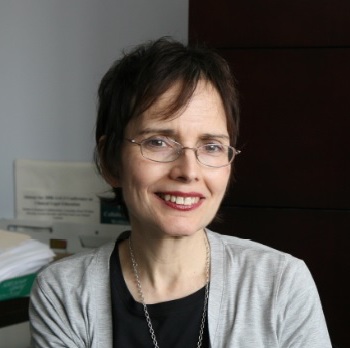Andrea McArdle’s chapter in The Cambridge Handbook of Commons Research Innovations, entitled “Reimagining Urban Public Housing as a Commons,” focuses on NYCHA, arguing for the primacy of NYCHA residents (rather than that of profit-driven developers) so that decision-making regarding public housing as a commons is grounded in residents’ urban knowledge, experience, and need, and informed by the social function of property theory.
Andrea McArdle, Professor of Law at City University of New York School of Law, teaches a variety of experiential courses, including seminars she designed in judicial rhetoric and in urban land use and community lawyering. Andrea begins her sixth year as chair or co-chair of the Law School’s Curriculum Committee, and, as Director of Legal Writing, has shaped the development of CUNY’s writing-intensive curriculum.
In 2013 she received a teaching award from the graduating class. Before joining the CUNY Law School faculty, she taught in the Lawyering Program at NYU School of Law, served as Lawyering Faculty Coordinator and, as NYU Lawyering Theory Workshop Coordinator, developed an interdisciplinary faculty workshop series to provide a framework for thinking about how lawyers work.
Andrea’s published articles and essays are at the intersection of law, narrative, and rhetoric, on pedagogy, and on urban land use and community studies. She has co-edited, and is a contributor to, the anthologies Uniform Behavior: Police Localism and National Politics (Palgrave Macmillan 2006) and Zero Tolerance: Quality of Life and the New Police Brutality in New York City (NYU Press, 2001). She has also been a Senior Assistant County Attorney for Westchester County and counsel to the Mount Vernon Urban Renewal Agency. She holds a J.D. from NYU School of Law, an LL.M. from Columbia Law School, an M.A. in literature from Columbia University Graduate School of Arts & Sciences, and a Ph.D. in American Studies from the Department of Cultural and Social Analysis, NYU Graduate School of Arts & Science.

